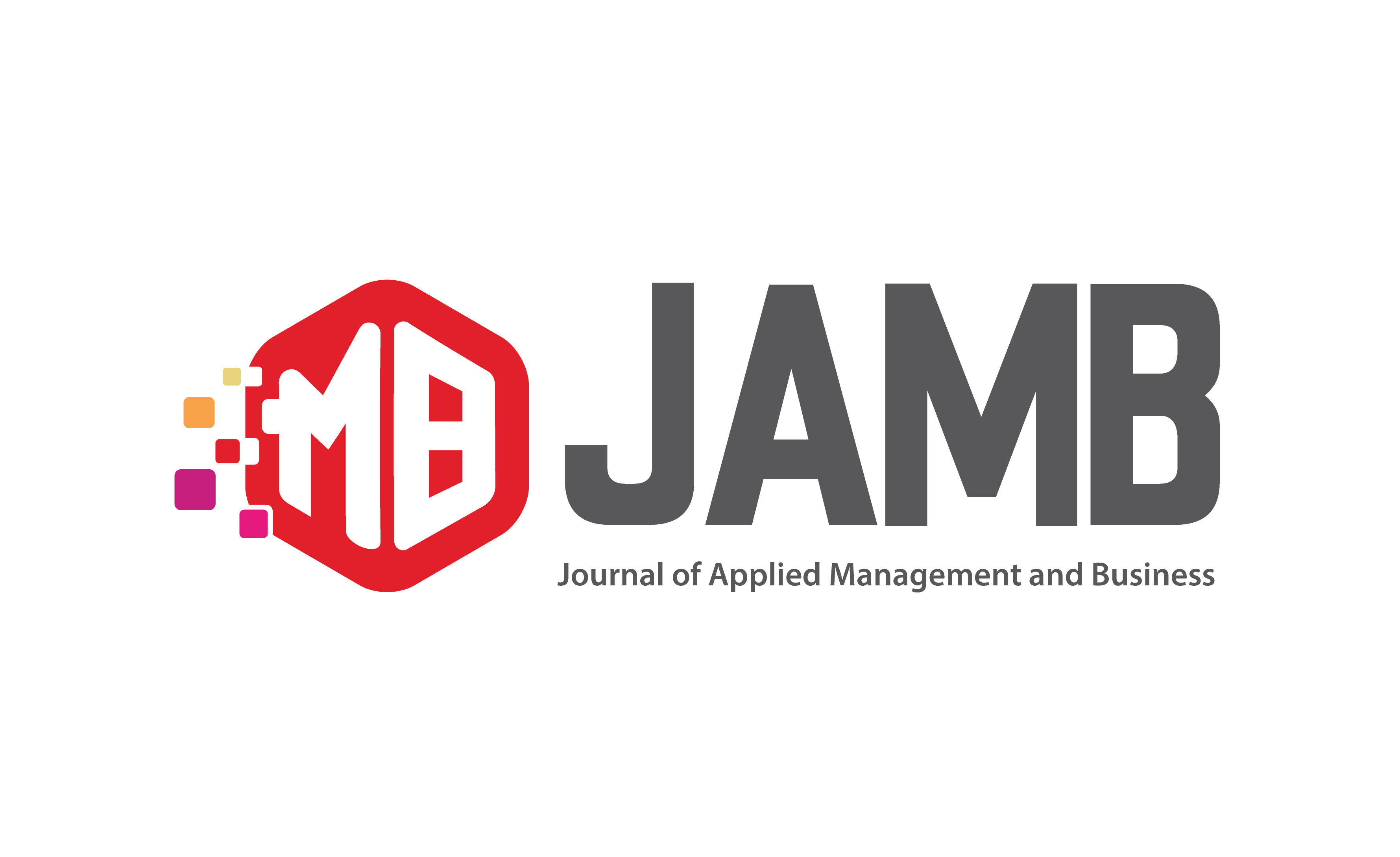The Effect Of Workload, Work Motivation And Work Discipline On Civil Servant Performance During Remote Working Period
DOI:
https://doi.org/10.37802/jamb.v6i1.1051Keywords:
Motivation, Performance, Workload, Work DisciplineAbstract
This research is a quantitative research, the purpose of this research is to know the influence of workload, motivation and work discipline on employee performance in the field of utilization division of center for data and information at ministry of education and culture Republic of Indonesia, during the implementation of Remote working. This study used a sample of 65 employees using saturated sample techniques. Data analysis techniques used in this study is partial least square (PLS). Test results obtained in this study first, workload positively and significantly affect the performance of employees in the field of utilization division of center for data and information at ministry of education and culture during remote working. Second, motivation positively and significantly affect the performance of employees in the field of utilization division of center for data and information.
Downloads
References
S. Mujanah and S. N. Aini, “Transformational Leadership, Kondisi Kerja Dan Budaya Organisasi Pengaruhnya Terhadap Kinerja Karyawan,” Bus. Financ. J., vol. 5, no. 2, pp. 155–164, 2020.
D. Giauque, K. Renard, F. Cornu, and Y. Emery, “Engagement, exhaustion, and perceived performance of public employees before and during the COVID-19 crisis,” Public Pers. Manage., vol. 51, no. 3, pp. 263–290, 2022.
N. Andriani, H. Sunaryo, and M. R. Basalamah, “Pengaruh Beban Kerja, Motivasi Kerja, Dan Disiplin Kerja Terhadap Kinerja (Studi kasus Pada Dinas Lingkungan Hidup Kota Malang),” E-JRM Elektron. J. Ris. Manaj., vol. 9, no. 11, 2020.
R. P. Sari, “Pengaruh Disiplin dan Pengawasan Kerja Terhadap Kinerja Karyawan,” Ecodunamika, vol. 1, no. 1, 2018.
R. Ahmad et al., “The impact of workload on job performance among doctors in Malaysian public hospitals. A case study,” Int. J. Bus. Soc., vol. 20, no. 3, pp. 1276–1293, 2019.
B. Bukit, T. Malusa, and A. Rahmat, Pengembangan Sumber Daya Manusia. Teori, Dimensi Pengukuran,. 2017.
E. Sutrisno, “Manajemen Sumber Daya Manusia Edisi 1 Cetakan keempat,” Jakarta Prenada Media Gr., 2012.
B. Bukit, T. Malusa, and A. Rahmat, “Pengembangan Sumber Daya Manusia. Teori, Dimensi Pengukuran,. file,” C/Users/Smile/Downloads/manajemen sumber daya Mns. (PDFDrive. com). pdf, 2017.
S. Mujanah, I. Ardiana, R. Nugroho, C. Candraningrat, A. Fianto, and D. Arif, “Critical thinking and creativity of MSMEs in improving business performance during the covid-19 pandemic,” Uncertain Supply Chain Manag., vol. 10, no. 1, pp. 19–28, 2022.
A. Fauzi, Manajemen kinerja. Airlangga university press, 2020.
I. Meithiana, “Kepuasan kerja dan kinerja karyawan tinjauan dari dimensi iklim organisasi, kreativitas individu, dan karakteristik pekerjaan.” Indomedia Pustaka, 2017.
A. R. Vanchapo and M. MKes, Beban kerja dan stres kerja. Penerbit Qiara Media, 2020.
V. Rivai and E. Jauvani, “Fungsi Manajemen Sumber Daya Untuk Perusahaan: Dari Perusahaan ke Praktik, Edisi ke–1,” Jakarta Rajawali Pers, 2011.
R. Irawati and D. A. Carollina, “Analisis Pengaruh Beban Kerja Terhadap Kinerja Karyawan Operator Pada Pt Giken Precision Indonesia,” Inovbiz J. Inov. Bisnis, vol. 5, no. 1, p. 51, 2017, doi: 10.35314/inovbiz.v5i1.171.
E. Mahawati et al., “Analisis Beban Kerja dan produktivitas kerja.” Yayasan Kita Menulis, 2021.
M. K. Irzal, Dasar-dasar kesehatan dan keselamatan kerja: Edisi 1. Kencana, 2016.
M. S. . Hasibuan, Manajemen Sumber Daya Manusia (Edisi Revisi). Jakarta: Bumi Aksara, 2019.
S. P. Siagian, Manajemen sumber daya manusia. Bumi Aksara, 2017.
D. Ma’rifah, “Implementasi Work From Home: Kajian Tentang Dampak Positif, Dampak Negatif Dan Produktivitas Pegawai,” Civ. Serv., vol. 14, no. 2, pp. 53–64, 2020.
M. Sindu, E. R. Cahyadi, and M. K. Widjajakusuma, “Panduan Lengkap Supervisi Diperkaya Perspektif Syariah,” PT Elex Media Komputindo, 2006.
L. P. Sinambela, Manajemen Sumber Daya Manusia, Pertama. Jakarta: PT Bumi Aksara, 2016.
T. H. Handoko, Manajemen Personalia & Sumberdaya Manusia. Yogyakarta: BPFE-YOGYAKARTA, 2020.
Z. Rialmi, “Pengaruh Kedisiplinan Terhadap Kinerja Karyawan Pada PT. Bhakti Karya Distribusi Indonesia,” JENIUS (Jurnal Ilm. Manaj. Sumber Daya Manusia), vol. 3, no. 3, pp. 286–293, 2020.
I. Ghozali, Structural Equation Modeling Dengan Metode Alternatif Partial Least Square (PLS). Semarang: Badan Penerbit Universitas Diponegoro, 2021.
I. Ghozali, Partial Least Squares: Konsep, Teknik, dan Aplikasi Menggunakan Program SmartPLS 3.0, vol. 7. 2014.
R. N. Pradipta and S. Suhermin, “Pengaruh lingkungan kerja, kepuasan kerja dan disiplin kerja terhadap kinerja pegawai,” J. Ilmu dan Ris. Manaj., vol. 9, no. 7, 2020.
Downloads
How to Cite
Issue
Section
License
Copyright (c) 2025 Journal of Applied Management and Business

This work is licensed under a Creative Commons Attribution 4.0 International License.











